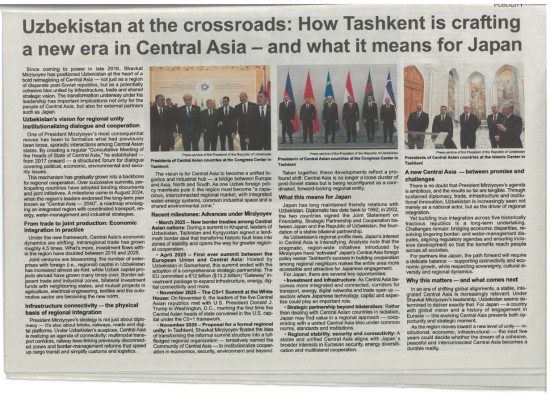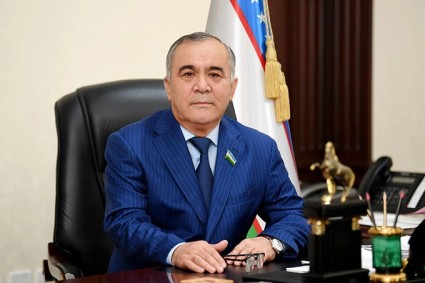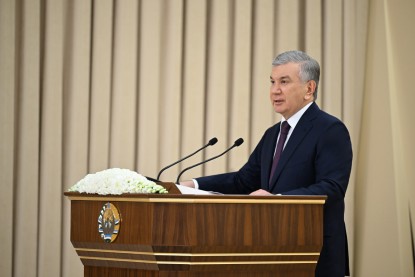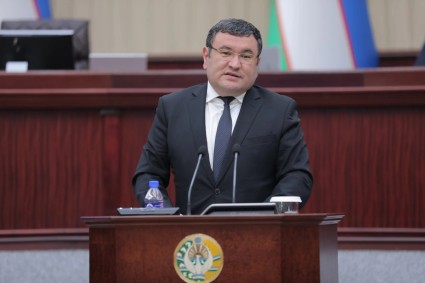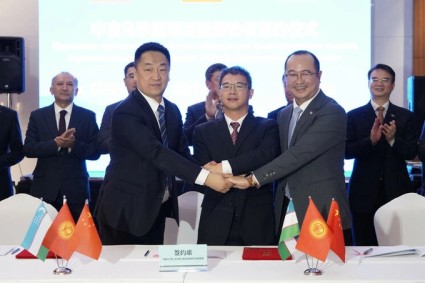President Shavkat Mirziyoyev signed the Introduction of New System of Organizing the Government of the Republic of Uzbekistan Decree which has cut the number of deputy prime ministers from eight to five.
The posts of Deputy Prime Ministers/Heads of complexes by economic and social sectors, as well as their offices (secretariat) have been abolished.
In addition, the Consolidated Information and Analytical Department for macroeconomic analysis and forecasting, reforming the financial and banking systems, the development of private entrepreneurship and small business, as well as information and analytical departments of complexes, sectors and areas of Uzbekistan’s socio-economic development have been abolished.
New posts in the executive structure of the Cabinet of Ministers:
- First Deputy Prime Minister/Minister of Transport;
- Deputy Prime Minister/Minister of Finance;
- Deputy Prime Minister for Investments and Foreign Economic Relations;
- Deputy Prime Minister for Social Development;
- Deputy Prime Minister/Chairman of the Women's Committee;
- Advisor to the Prime Minister for Development of Oil, Energy and Main Industries;
- Advisor to the Prime Minister for Development of Agriculture and Food Sectors.
In accordance with the decree, the Prime Minister carries out overall coordination of the activities of ministries, state committees and other government bodies in order to ensure the achievement of targets set for the government, and makes concerted decisions on differences that have arisen.
Deputy Prime Ministers monitor the implementation of laws, acts, parliamentary and deputy inquiries, decisions and instructions of the president by the ministries, state committees and other bodies.
Their tasks also include "permanent study of the real situation on the ground, comprehensive analysis of problems in the economy and the social sphere, and based on findings, they are tasked with development of comprehensive proposals for the implementation of strategic and priority goals."
However, “the deputy PMs are not allowed to intervene in the activities of ministries, state committees, government bodies and the local executive authorities in the performance of assigned tasks”.
Advisers to the Prime Minister ensure thorough study, examination and preparation of proposals to the Prime Minister on relevant areas and issues within their competence.
Candidates for the positions of deputy prime ministers, ministers and chairmen of state committees must be approved by the Legislative Chamber as of April 1.
Ministers, chairmen of state committees and heads of other government bodies shall bear personal liability for the quality of proposals, analytical and other documents submitted to the Cabinet of Ministers, including drafts of bills, legal acts, as well as for the final results and consequences of their implementation.
Advisers to the Prime Minister shall be appointed and dismissed by the Prime Minister in consultation with the President.
In order to increase the efficiency of the work of the Deputy PMs and the Cabinet of Ministers’ Office, a fundamental revision of the functions and powers of the Deputy Prime Ministers, as well as heads of structural divisions of the Government Office, with a view to transferring some of their functions to relevant local government bodies places are planned.




